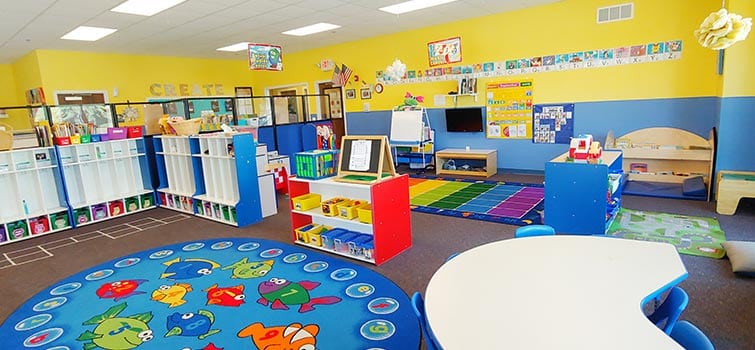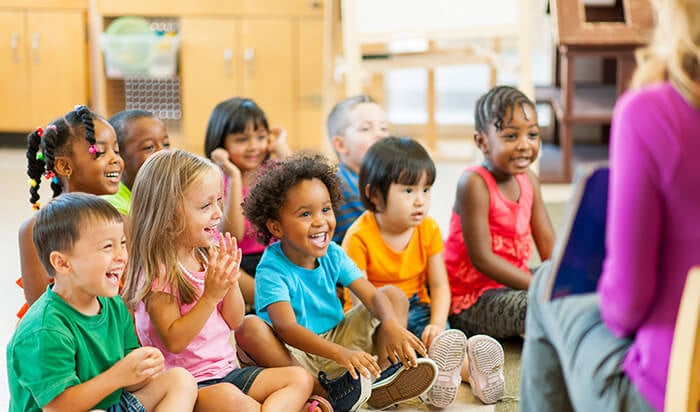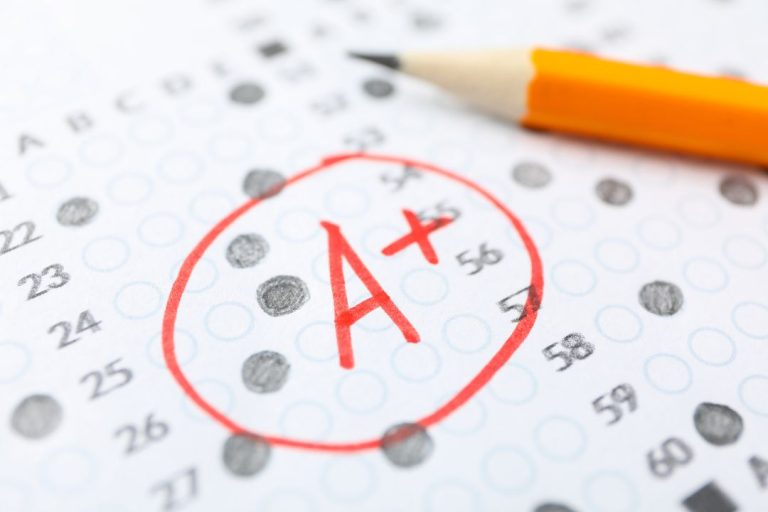Is Pre K the Same As Preschool? Understand the Key Differences

Pre K and preschool are two different terms that refer to early childhood education. Pre K is a specific type of preschool program that focuses on preparing children for kindergarten.
It typically includes activities designed to develop skills in areas like literacy, numeracy, and socialization, and is commonly attended by children aged 4 and 5 years old. Preschool, on the other hand, is a more general term that encompasses a wide range of early childhood education programs for children aged 3 to 5.
These programs vary in curriculum and objectives, but their main aim is to prepare children for kindergarten and promote their overall development.
Pre K Vs Preschool Explained
When it comes to early childhood education, both Pre K and preschool play a crucial role in setting a strong foundation for a child’s future academic and social success. However, it is important to understand the primary objectives of each program and how they differ.
Pre K, short for Pre-Kindergarten, is designed to prepare children for kindergarten by focusing on specific skills and knowledge necessary for success in a classroom setting. It aims to provide a structured learning environment where children learn the building blocks of literacy, numeracy, and social skills.
On the other hand, preschool serves as an introduction to the school environment and formal education. It prioritizes a child’s social and emotional development, encouraging play-based learning and fostering relationships with peers and educators. Preschool offers a less structured setting that allows children to explore and discover their interests while developing essential social skills.
Understanding the age group targeted by each program is crucial when considering the best option for your child’s early education.
Pre K typically caters to children between the ages of four and five, just one or two years before they enter kindergarten. It focuses on refining skills that are essential for a smooth transition to a formal school setting, such as early literacy, numeracy, critical thinking, and problem-solving.
Preschool, on the other hand, welcomes children as young as two and goes up to the age of four. It encompasses a broad age range that allows children to learn and grow at their own pace, alongside peers of different developmental stages.
While both Pre K and preschool provide a valuable early learning experience, their curriculum differs in certain key aspects.
Pre K programs usually have a more structured curriculum, following state and national academic standards. The focus is often on individual skill-building through activities such as letter recognition, basic math concepts, and early writing practice. Pre K may also introduce foundational concepts of science, social studies, and art.
On the other hand, preschool curriculum places a heavier emphasis on play-based and hands-on learning. While basic academic skills like letter and number recognition and social skills development are integrated into the curriculum, the approach is predominantly child-centered. Preschool encourages learning through exploration, imagination, and interactive activities that promote cognitive, physical, and emotional development.
In conclusion, both Pre K and preschool have significant roles in a child’s early education journey, but with different objectives and approaches. Pre K prepares children for the academic demands of kindergarten, while preschool focuses on fostering social, emotional, and cognitive growth through play-based learning. Identifying the goals and age appropriateness of each program will help parents make an informed decision based on their child’s needs and developmental stage.

Credit: baysidediscoverycenter.com
Pre K Essentials Unveiled
When it comes to early childhood education, Pre K is often considered a stepping stone towards preschool and kindergarten. Many people wonder if Pre K is the same as preschool or if it offers additional benefits to young learners. In this article, we will delve into the essentials of Pre K education, exploring its structured learning environment characteristics, its role in kindergarten readiness, and its typical schedule and learning modules.
Structured Learning Environment Characteristics
Pre K programs provide a structured learning environment that is tailored to meet the developmental needs of young children. These programs emphasize a combination of academic knowledge and social-emotional growth, laying a strong foundation for future learning. Key characteristics of a structured Pre K environment include:
- Qualified teachers who understand child development and are trained in early childhood education techniques
- Low student-to-teacher ratios to ensure personalized attention and support
- Engaging and age-appropriate learning materials, including hands-on activities, educational toys, and interactive technology
- A positive and inclusive classroom culture that fosters cooperation, empathy, and respect for diversity
- Regular assessment and progress monitoring to identify areas of strength and areas for improvement
The Role Of Pre K In Kindergarten Readiness
One of the primary goals of a Pre K program is to prepare children for a smooth transition into kindergarten. Pre K builds a strong educational foundation, equipping children with the necessary skills and knowledge to excel in subsequent grades. Some ways in which Pre K contributes to kindergarten readiness include:
- Developing early literacy skills through activities that promote phonological awareness, vocabulary development, and a love for reading
- Building mathematical foundations by introducing basic concepts such as counting, patterning, and shape recognition
- Encouraging social skills and emotional intelligence through group play, cooperative activities, and conflict resolution strategies
- Fostering fine and gross motor skills through art projects, physical activities, and outdoor play
- Enhancing cognitive abilities like problem-solving, critical thinking, and logical reasoning through age-appropriate puzzles and games
Typical Schedule And Learning Modules
The schedule and learning modules in a Pre K program may vary depending on the school and curriculum. However, there are some common elements that can give you an idea of what to expect. Here is an example:
| Time | Activity |
|---|---|
| 8:30 AM – 9:00 AM | Morning meeting and circle time: Songs, stories, and discussions |
| 9:00 AM – 10:00 AM | Literacy development: Reading, writing, and language activities |
| 10:00 AM – 10:15 AM | Snack time and bathroom break |
| 10:15 AM – 11:00 AM | Mathematical exploration: Counting, number recognition, and problem-solving |
| 11:00 AM – 11:30 AM | Outdoor play and gross motor activities |
| 11:30 AM – 12:00 PM | Art and creativity: Painting, crafting, and sensory experiences |
| 12:00 PM – 12:30 PM | Lunchtime and quiet reading |
| 12:30 PM – 1:30 PM | Exploration and discovery: Science experiments, nature walks, and experiments |
| 1:30 PM – 2:30 PM | Social and emotional development: Cooperative games, role play, and mindfulness activities |
| 2:30 PM – 3:00 PM | Closing circle, reflection, and end of the day routines |
A typical Pre K day incorporates a balance of teacher-led instruction, hands-on activities, free play, and structured routines. This diverse schedule ensures that children have opportunities to explore different subject areas, engage in social interactions, and develop essential skills across various domains.
Unraveling Preschool Fundamentals
In the journey towards early childhood education, understanding preschool fundamentals is essential. Preschool lays the foundation for a child’s development and helps prepare them for the academic rigors of later years. Let’s dive into the key aspects that make preschool a unique and enriching experience for young learners.
Emphasis On Play-based Learning
Preschool programs prioritize play-based learning as a fundamental approach to education. Play is not merely a moment of fun for children; it is an opportunity for exploration, imagination, and learning. Whether engaging in pretend play, building blocks, or working on puzzles, children develop crucial cognitive and problem-solving skills. Through play, they also cultivate creativity, critical thinking, and decision-making abilities that will benefit them throughout their lives.
Social Skills And Developmental Milestones
Preschool provides an environment where children can nurture their social skills and reach developmental milestones. Interacting with their peers and teachers helps young learners build important social connections and develop vital communication and cooperation skills. Within preschool settings, children learn to express emotions, share ideas, take turns, and resolve conflicts, fostering their emotional intelligence and empathy.
In addition, a holistic approach to development ensures that preschool programs address physical, cognitive, emotional, and language milestones. Activities and exercises are specifically tailored to support each child’s growth and development, providing a well-rounded educational experience.
Diverse Daily Activities And Routines
A day in preschool encompasses a variety of activities and routines to engage young minds. From storytelling and music sessions to art projects and outdoor play, each day is filled with diverse experiences. These activities stimulate children’s interest, curiosity, and enthusiasm, creating an environment conducive to exploration and learning.
Preschools establish daily routines that promote a sense of structure and predictability. Consistency helps children feel secure and develop a sense of responsibility and self-discipline. Structured activities such as circle time and group discussions encourage active participation, enhance listening skills, and foster a sense of community.
Preschools also incorporate rest and relaxation periods, ensuring a balance between learning and taking care of a child’s individual needs.
To Summarize
Preschool is an integral part of a child’s educational journey, offering a foundation for future learning. With an emphasis on play-based learning, fostering social skills and developmental milestones, and providing diverse activities and routines, preschools create an environment that promotes holistic growth and development. Understanding the fundamentals of preschool education lays the groundwork for ensuring a successful and enriching early childhood experience.
Is Pre K The Same As Preschool? Key Differences
When it comes to early childhood education, the terms “Pre K” and “preschool” are often used interchangeably. However, there are key differences between the two that parents and educators should be aware of. Understanding these differences can help you make informed decisions about the most suitable educational option for your child.
Variation In Teaching Approaches
One of the main differences between Pre K and preschool lies in the variation of teaching approaches. While preschool typically focuses on play-based learning and social development, Pre K programs tend to have a more structured and academic approach. In Pre K, teachers often introduce basic literacy and numeracy skills in preparation for kindergarten.
Moreover, Pre K programs may incorporate more formal instruction methods such as circle time and small group activities to foster early learning. This emphasis on structured learning can provide children with a solid foundation before entering more formal schooling.
Difference In Educational Goals
Another distinction between Pre K and preschool lies in their educational goals. Preschool programs typically prioritize social and emotional development, encouraging children to interact, play, and express themselves. These programs often focus on building essential skills such as cooperation, sharing, and problem-solving.
On the other hand, Pre K programs have a more academic focus. They aim to prepare children for kindergarten by introducing foundational academic skills. These skills may include letter recognition, early reading, counting, and basic math concepts. By the time children complete a Pre K program, they would have a solid understanding of these fundamental academic concepts.
Pre K And Preschool: Licensure And Regulations
In addition to teaching approaches and educational goals, the licensure and regulations surrounding Pre K and preschool programs can also vary. Preschools may operate under different state regulations and requirements, depending on the region. However, these regulations are often less stringent compared to those for Pre K programs.
Pre K programs, on the other hand, are typically subject to more rigorous guidelines and accreditation processes. These programs may require teachers to have specific certifications or degrees in early childhood education. Additionally, Pre K programs may need to meet certain standards regarding staff-to-child ratios, curriculum, and facilities.
Variation In Teaching Approaches
One of the main differences between Pre K and preschool lies in…
Difference In Educational Goals
Another distinction between Pre K and preschool lies in their…
Pre K And Preschool: Licensure And Regulations
In addition to teaching approaches and educational goals, the…
By utilizing these HTML codes, you can ensure that the H3 headings adhere to HTML syntax in your WordPress blog post.
Making The Choice For Your Child
Pre K and preschool may seem similar, but there are key differences. Pre K offers a more structured curriculum preparing children for kindergarten, while preschool focuses on socialization and basic skills development. Choose the best fit for your child’s needs.
Factors To Consider In The Decision-making Process
When it comes to making the choice between Pre K and preschool for your child, there are several important factors that you need to consider. It’s a decision that will have a significant impact on your child’s early education, so taking the time to carefully evaluate these factors is crucial. Here are a few key things to think about:
1. Cost:
One of the most practical factors in your decision-making process is the cost. Pre K programs are often funded or subsidized by state or local governments, which can make them more affordable for families. On the other hand, preschools may come with a higher price tag since they are typically privately operated. Assess your budget and determine what you can comfortably afford for your child’s education.
2. Curriculum:
Another important factor to consider is the curriculum offered by each option. Pre K programs are usually designed to prepare children for kindergarten, focusing on important academic and social skills. Preschools, on the other hand, may have a more play-based approach, allowing children to learn through hands-on activities and exploration. Assess your child’s learning style and preferences to determine which curriculum would be the best fit.
3. Teacher qualifications and ratios:
The qualifications and experience of the teachers in both Pre K and preschool programs are vital considerations. Look for programs that employ certified teachers with a background in early childhood education. Additionally, consider the teacher-student ratios in each setting. A lower ratio means that your child will receive more individual attention and support.
4. School environment:
The overall environment of the school or program is also crucial in your decision-making process. Visit each potential option and observe the facilities, classroom setups, and resources available. Take note of the atmosphere and consider whether it feels welcoming, safe, and stimulating for your child. A positive and nurturing environment can greatly enhance your child’s learning experience.
Assessing Your Child’s Individual Needs
To make the best choice for your child, it is crucial to assess their individual needs. Every child is unique, so understanding their strengths, weaknesses, and preferences is key. Here are a few factors to consider when evaluating your child’s individual needs:
1. Developmental milestones:
Take note of where your child stands in terms of their developmental milestones. Are they ready for a more structured learning environment, or do they thrive in a play-based setting? Consider their social, emotional, and cognitive development to determine which option may be more suitable.
2. Special considerations:
If your child has any special needs or requirements, it is essential to consider how each program can accommodate them. Some Pre K programs may have additional resources or specialized support for children with specific needs. Discuss any concerns or considerations with the educational professionals to ensure your child’s needs will be met.
Consulting With Educational Professionals, Ensuring
When making such an important decision, it can be incredibly valuable to consult with educational professionals. Their expertise and insight can provide valuable guidance and help you make an informed choice. Here are a few steps to take when consulting with these professionals:
1. Seek recommendations:
Reach out to your child’s current or previous teachers, school counselors, or other educational professionals in your network. Ask for their recommendations or insights regarding the choice between Pre K and preschool. They may have valuable firsthand experience or knowledge about the programs available in your area.
2. Schedule meetings or visits:
Arrange meetings or visits with representatives from both Pre K and preschool programs you are considering. Prepare a list of questions to ask about their curriculum, teaching methods, teacher qualifications, and the overall educational approach. This will give you a deeper understanding of each program and its suitability for your child.
3. Seek feedback from other parents:
Consider seeking feedback from other parents whose children have attended Pre K or preschool programs in your area. They can provide insights into their experiences and help you gain a broader perspective on the options available.
By carefully considering these factors and consulting with educational professionals, you can make an informed decision about whether Pre K or preschool is the best choice for your child. Remember that every child is unique, and what works for one child may not necessarily work for another. Taking the time to assess your child’s individual needs and gather relevant information will ultimately lead to a decision that sets them on the path to a successful and fulfilling educational journey.
Frequently Asked Questions For Is Pre K The Same As Preschool
Answer:
Pre K and preschool are often used interchangeably, but they are not exactly the same. Pre K is a specific type of preschool program that focuses on preparing children for kindergarten. It typically has a more structured curriculum and may have age requirements.
Preschool, on the other hand, is a more general term that refers to any early education program for children before they start kindergarten.
Conclusion
To sum up, while the terms “Pre K” and “preschool” are often used interchangeably, there are some subtle differences between them. Pre K typically refers to a program that prepares children for kindergarten, focusing on academic and social skills. On the other hand, preschool is a more general term encompassing various early childhood education programs.
Understanding these distinctions can help parents make informed decisions about their child’s early education.

With over 20 years of experience in early childhood education, Jane brings a wealth of knowledge to Classroom Journey. She specializes in play-based learning and has a passion for inclusive education.






2 Comments